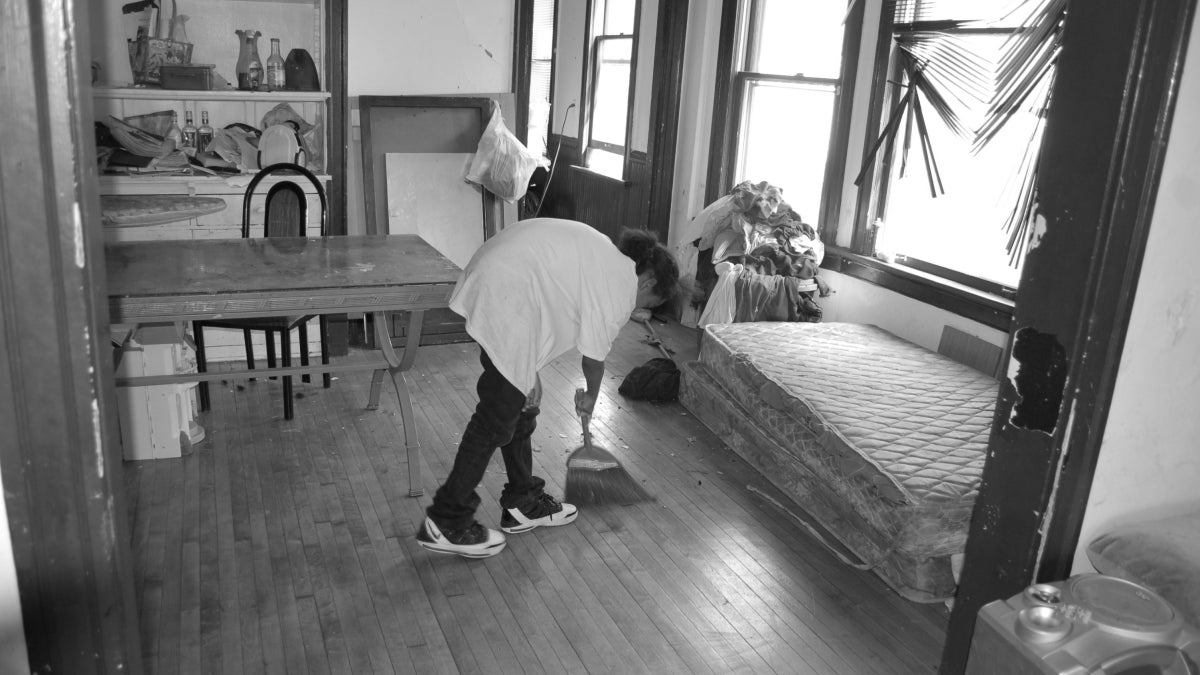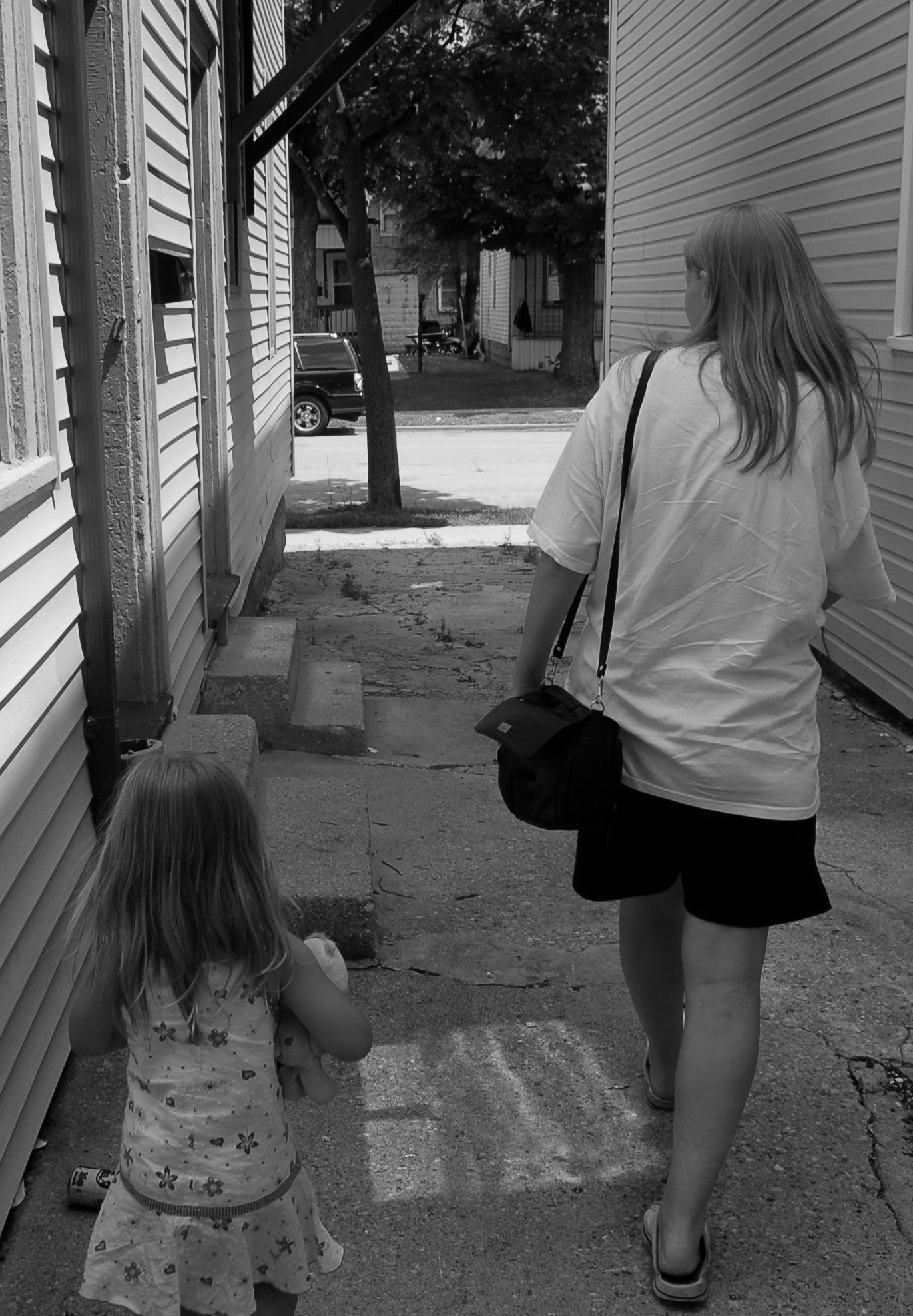Editor’s note: It was announced on April 10, 2017, that ASU grad and Harvard Associate Professor Matthew Desmond was awarded the Pulitzer Prize in the General Non-Fiction category for “Evicted,” the book discussed below in a 2016 story. For more information on this Pulitzer Prize-winning work, visit www.pulitzer.org/winners/matthew-desmond.
____________________________
After paying rent, Lamar, a disabled single father of two boys, had $78 left for the rest of the month.
That’s less than $2.50 a day for heat, soap, spaghetti, snow boots, school notebooks, bus fare and everything else.
So he fell behind on the rent. And he was evicted.
Lamar and his sons were one of eight Milwaukee families that sociologist Matthew Desmond followed for a year before writing his new book, “Evicted: Poverty and Profit in the American City.”
Desmond, a graduate of Arizona State University, is an associate professor of sociology at Harvard University. In 2015, he was awarded a MacArthur “genius grant.” On Thursday, April 7, he'll discuss his book at ASU.
“Evicted” is the powerful story that Desmond uncovered while he spent a year living among poor people in Milwaukee. He spent several months in a decrepit trailer park in a poor white neighborhood and the rest of the year living in a rooming house in the mostly black North Side. He spent thousands of hoursDesmond, who used pseudonyms to protect his subjects' identities, wrote: “My identity opened some doors and closed others.” with the eight families, black and white, old and young, with kids and without.
He found that one in four poor working families paid up to 70 percent of their monthly incomeThere is broad consensus that families should spend about 30 percent of their income on housing, Desmond writes. for rent.
“Eviction is much more an inevitability than a result of irresponsibility,” Desmond said.
Poor people — most of whom live in private housing, not public — are a lucrativeDesmond's rooming-house landlord netted about $10,000 a month in rent. “The 'hood is good,” she told him. source of income for landlords. When they evict families, it launches a series of events that can drag families even deeper into poverty. Tenants’ possessions end up in storage, which charges escalating rates with every passing month. Housing court tacks big fees onto back rent. Work days — and pay — are missed. No amount of savings can erase the debt.
Milwaukee, like many cities, has a “nuisance law,” so victims of domestic violence can be evicted if neighbors call 911 when there’s violence.

ASU graduate Matthew Desmond spent a year living with poor families while researching his book on eviction.
In one family Desmond followed, the 14-year-old son missed 17 consecutive days of school while helping his mother find a new place to live. He attended five schools in two years.
“How do we expect him to connect with his teachers under those circumstances?” Desmond said.
"Evicted" reads like a thriller: Will Sherrena really evict Lamar, who has no legs? After making 90 calls, will Arleen and her two sons ever find an apartment?
Desmond’s year of field work allowed him to examine the issue from every conceivable angle, including from the viewpoints of the landlords. Most researchers studied poor people in isolation.
“Where were the rich people who wielded enormous influence over the lives of low-income families and their communities — who were rich precisely because they did so?” he writes in the chapter titled “About This Project.”
Sherrena, the former elementary school teacher turned property owner, “knew the value of the ghetto,” Desmond writes. She let him tag along on rent-collection day as she confronted one desperate tenant after another so he could see “what landlords have to go through.”
Sherrena is a force, literally grabbing every last dollar from one tenant while buying groceries for another.
Among the most horrific scenes in the book — and for Desmond to watch, he wrote — are when the movers arrive, usually without notice. Their work is brutal.
“This is my art,” one evictor said, pointing to a pile of belongings on a wet sidewalk.
Desmond grew up in Winslow, Arizona, a small town about 60 miles east of Flagstaff, and came to ASU intending to be a lawyer.
“I started taking classes that presented me with an image of America that confused me and troubled me,” he said. “I’ve always been troubled by poverty. I thought it was unnecessary.
“That really solidified itself in my mind while I was at ASU.”
He volunteered with Habitat for Humanity and started talking to the homeless people who hung out on Mill Avenue. He learned about ethnography, the study of people from the point of view of the subject. A student in Barrett, the Honors College, he did his thesis on homeless people.
“I started a student organization that was basically designed to connect students with homeless folks,” he said. “We visited them and sometimes brought food, but mostly we were there for swapping stories.
“The folks I met were funny and genuine and troubled. And that was something that brought me into my writing today.”
In 2002, he graduated with two degrees, in communications and justice studies.
The eviction research he did in 2008 in Milwaukee was for his doctorate dissertation at the University of Wisconsin in Madison.
Desmond took this photograph and the one at top during the year he followed eight families, black and white, in Milwaukee. He has kept their identities private.
As the year unfolded, Desmond knew that Lamar and Arleen and the other tenants had compelling stories. What was missing was data.
“I was confronting questions that were beyond the scope of my fieldwork, and there weren’t a lot of studies and no data that would allow me to get at those. I ended up collecting most of that data myself.”
His day-to-day life among poor people helped him create a survey of 1,100 renters, which collected dataBetween 2009 and 2011, one in eight Milwaukee renters experienced a forced move, he found. A later survey he created found that the presence of children in the household tripled a tenant’s odds of receiving an eviction judgment. on housing and eviction. He also reviewed court records, nuisance property citations, property and school records and other data.
Desmond shows the humanity of the people he lived with, both the ways they were exploited and their own ruinous decisions. Lamar is disabled because he lost his feet to frostbite while high on drugs.
“There were moments of hardship and moments of suffering and pain and moments of desperation,” Desmond said of his book. “And it has moments of brilliance and spunk and courage and humor in the face of adversity.
“The people in the book refused to be reduced to their hardships.”
As the manuscriptThe transcription of Desmond’s 18 months of interviews ran to 5,000 single-spaced printed pages. was nearing completion, he returned to Milwaukee. He wanted everyone who had accepted him into their lives to read what he wrote. In some cases, he read his book to them.
“We had long conversations, and a lot of fact-checking happened,” he said. In the end, only two minor changes were requested.
“It was amazing to me to have folks like Arleen and Crystal [a young woman who spent her life in foster care before trying to find a place to live on her own] believe in the integrity of the work, and understand why I wrote about their full selves.”
The sometimes-avaricious landlord Sherrena was laid-back about the book, he said.
“She’s very proud of her work and sees herself as a successful businesswoman,” he said.
After finishing the book, Desmond launched a website, justshelter.org, that lists nonprofit agencies in every state that help tenants find and keep decent housing. But he believes a voucher system is the best solution.
“The book raises the question: ‘Is housing a right?’ I say yes. Without sustainable shelter, everything else falls apart,” he said.
“We need a major investment in affordable housing. We can’t leave it to these (non-profit) organizations no matter how amazing they are. We need the answer to be from the federal government.”
The topic of eviction was personal for Desmond. When he was a student at ASU, his family’s home was lost to foreclosure. He drove up to Winslow to help his parents move.
“I remember experiencing that moment of shame and embarrassment. A lot of people who are evicted think it’s their fault,” he said.
“This book gave these people a shot at participating in the narrative of their own lives.”
Desmond will hold a public lecture and book signing at 5 p.m. Thursday, April 7, in room 174 of Coor Hall on ASU's Tempe campus.
More Arts, humanities and education

ASU alumna makes her way back to the ASU Gammage stage for '¡azúcar!'
As the Los Angeles-based CONTRA-TIEMPO dance group prepares for its upcoming production “¡azúcar!” at ASU Gammage, for one member of the dance group it is also a nostalgic return to her home.Born in…

ASU FIDM professor wins international award for fantastical, sustainable creation
The horror of an ailing Earth inspired an Arizona State University fashion professor to create a fantastical garment out of sustainable, re-used and found materials that won a prestigious…

ASU workshop trains educators, professionals from marginalized communities in disaster science
As devastating as hurricanes can be to anyone caught in their paths, they strike marginalized communities even harder.To address this issue, a fund named for a former Arizona State University…

